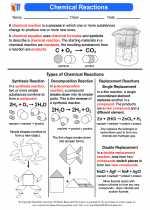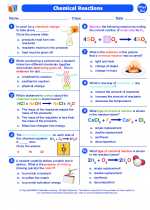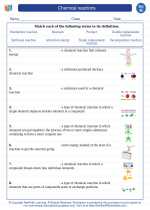Change in Science
Change is a fundamental concept in science that refers to any alteration in the properties or state of a system. In science, change can occur in various forms, including physical, chemical, and biological changes. Understanding the different types of change is essential for comprehending the natural world and the processes that drive it.
Types of Change
1. Physical Change: This type of change involves a transformation in the physical properties of a substance without altering its chemical composition. Examples include changes in state (solid to liquid, liquid to gas), changes in shape, and changes in size.
2. Chemical Change: Chemical change occurs when the chemical composition of a substance is altered, leading to the formation of new substances with different properties. Common indicators of a chemical change include the release of heat or light, formation of a precipitate, or a color change.
3. Biological Change: This type of change pertains to alterations in living organisms and their environment. It encompasses processes such as growth, reproduction, metabolism, and response to stimuli.
Factors Affecting Change
Several factors can influence and drive change in the natural world. These factors include:
- Temperature: Changes in temperature can cause substances to undergo physical or chemical changes.
- Pressure: Alterations in pressure can impact the state of matter and chemical reactions.
- Environmental Conditions: Factors such as humidity, light, and pH levels can influence biological changes in organisms and ecosystems.
- Energy Input: The input of energy, in the form of heat, light, or other sources, can drive changes in systems.
Studying Change
To understand and study change in science, it is important to:
- Observe and identify different types of changes in the natural world.
- Conduct experiments to investigate the factors that influence specific changes.
- Analyze data and observations to draw conclusions about the nature of change.
- Apply knowledge of change to practical situations, such as technological advancements and environmental conservation.
By comprehensively studying change, scientists can gain insights into the underlying principles that govern the universe and its dynamic processes.
Summary
Change is a fundamental concept in science, encompassing physical, chemical, and biological transformations. Understanding the different types of change and the factors that drive them is crucial for gaining insights into the natural world and its mechanisms.
For further exploration, consider conducting experiments to observe and analyze various types of changes, and reflect on the implications of change in different scientific fields.
[Change] Related Worksheets and Study Guides:
.◂Science Worksheets and Study Guides Eighth Grade. Chemical reactions

 Activity Lesson
Activity Lesson
 Worksheet/Answer key
Worksheet/Answer key
 Worksheet/Answer key
Worksheet/Answer key
 Worksheet/Answer key
Worksheet/Answer key
 Worksheet/Answer key
Worksheet/Answer key
 Vocabulary/Answer key
Vocabulary/Answer key
 Vocabulary/Answer key
Vocabulary/Answer key
